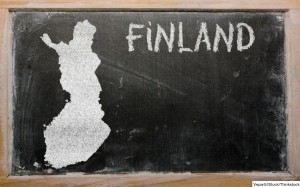Inside Finland: Why the Best are Still Pretty Bad
< < Go Back
The short answer to the puzzle of why the world’s best school systems are still pretty bad is that in every developed country, at least, the what, how, where and for whom of instruction for children is political. The political process yields nearly identical debilitating heroic assumptions everywhere.
The latest telling case in point is Finland, a fading widely-alleged poster child for enlightened, teacher-friendly, centrally-planned instruction for schoolchildren. The political process in Finland, and elsewhere, insists on comprehensively uniform assigned schools; dealing with student diversity with large campuses and lots of electives, and with “differentiated instruction” within highly diverse classrooms. Differentiated instruction, while sounding impossible — and it seems so, except among a highly gifted elite set of teachers — is politically correct (everyone gets the same opportunities/treatment) and “plenty popular among educators, too, thanks to its obvious allure on grounds of both fairness and individualization,” and rare. As the authors of the study that included an assessment of Finland note, “Everywhere we went, we encountered some version of this assertion: We don’t need to provide special programs [or schools], because we expect every school and teacher to adapt their instruction to meet the unique educational needs of all children. But such solemn, wishful affirmations don’t necessarily accord with reality on the ground.”
So, we have politically-governed instruction everywhere driven by hope triumphing over experience and common sense; by an assumption that a political need/convenience — effective differentiated instruction — is more than a cruel pipe dream; the ultimate devastating heroic assumption.
More From NCPA:




